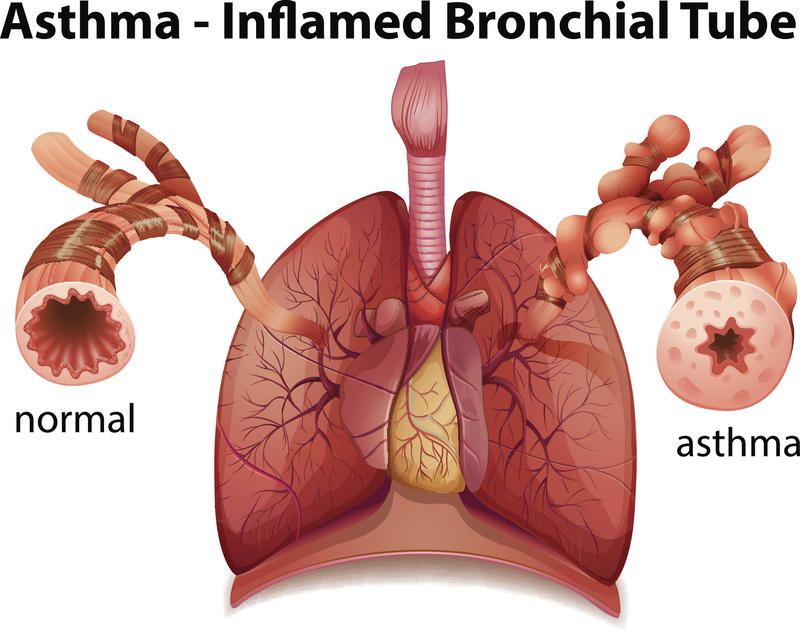What is asthma?
Asthma is a lifelong lung condition that makes it difficult to breathe. Asthma causes airways to swell, narrow, and produce extra mucus. This makes it harder for air to get to the lungs. This can cause coughing, wheezing, or shortness of breath.
Asthma Action Plan
- An Asthma Action Plan is a written plan created with a doctor to help do normal everyday activities without having asthma symptoms. It explains what to do when the person with asthma feels well or experiences symptoms, and how to prevent and recognize an asthma emergency
- Everyone with asthma should have an Asthma Action Plan in writing from their medical provider
Asthma Fact Sheet
Use our Asthma Fact Sheet to learn more about asthma, asthma by the numbers, symptoms, common asthma triggers, treatment and management, and two free home-based services provided by BPHC for Boston residents.
This fact sheet can also be used as an educational resource on asthma.
Signs and symptoms of asthma
Knowing early warning signs of asthma can prevent emergencies. The common symptoms of asthma include:
- Coughing, especially at night, during exercise or while laughing
- Difficulty breathing
- Chest tightness
- Shortness of breath
- Wheezing
* Sickle cell disease is a chronic, genetic blood disorder. It causes painful attacks that can be difficult for patients to manage. Asthma is more common in children with sickle cell disease.
What causes asthma?
We can’t always say what causes asthma. But, there are many things we know that often contribute to developing asthma. These include:
- Family history/genetics
- Allergies
- Premature birth
- Lung infections
- Occupational exposures
- Hormones
- Environment
- Obesity
What triggers asthma?
Asthma triggers are different for everyone. People with asthma should know their triggers and avoid them or prevent exposure.
- Common allergic triggers: pollen, pets, or dust mites
- Non-allergic triggers: smoke, chemical fumes, strong odors, extreme weather conditions, exercise, illness, or intense emotions
Diagnosis, prevention and control
How is Asthma Diagnosed?
Doctors or specialists diagnose asthma using a combination of tools. This includes a patient’s medical and personal history, physical exam, and lung function test.
Asthma Prevention/Control
While everyone's asthma is different, a few things can benefit everyone:
- Avoiding, eliminating, and managing triggers that make asthma worse
- Taking medications as instructed, including:
- Daily or controller medication(s)
- Emergency, rescue or quick relief medication(s)
There are many types of medications in different combinations. Work with your doctor to find the right one.
Asthma Action Plan
Have an Asthma Action Plan! This is a written plan created with a doctor to help manage and control asthma. It provides guidance when anyone with asthma feels well, experiences symptoms, and experiences an emergency.
Massachusetts Asthma Action Plan (English)
Massachusetts Asthma Action Plan (Spanish)
Massachusetts Asthma Action Plan (other languages)
Medications
Prescribed asthma medications help with a patient’s asthma and symptoms. Do not share your medications with others. Ask your medical professional to show how and when to use medication. It is important to take your medications as prescribed. See your doctor every 2-4 months to adjust dosage as needed.
Some asthma medications include:
- inhalers (recommended to use with “spacer”)
- nebulizers
- long-term and quick relief medicine
To learn more visit the Asthma & Allergy Foundation.
In Case of an Emergency
Always have an emergency rescue inhaler and emergency contact on hand. When in doubt, call 911!




